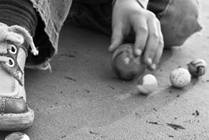Search Results
Viewing: 211-220 of 1469 | All
Article
Nasal Turbinate Reduction
Prepare for your child's nasal turbinate reduction with this Helping Hand.
Article
Urodynamics
Urodynamics is a series of tests that are done to see how well the urethra and bladder are working. This Helping Hand will teach you everything you need to know to prepare for your child's tests.
Article
Splenectomy
This Helping Hand™ talks about what a splenectomy is, why your child may need one, and how to care for a patient who has had one.
Article
Walkers Orthopedic
Walkers can be used to keep weight off a leg or foot while it is healing. They are often used instead of crutches for younger children or those who have trouble keeping their balance.
Article
Exercises: Left Torticollis Positioning for Play
Left torticollis (tor ti COLL iss) is a tightening of the muscles on the left side of the neck. It results in your child often bending his or her head to the left side and looking to the right side. Your child may not be able to easily turn his or her head to the left due to the muscle tightness.
Article
Exercises: Right Torticollis Positioning for Play
Right torticollis is a tightening of the muscles on the right side of the neck. It results in your child frequently bending his or her head to the right side and looking to the left side.

Article
Supporting Your Child During a Divorce
Divorce can have many effects on children. This Helping Hand™ explains some of those ways and how to help your child during this time.
Article
Breast Milk for Your Hospitalized Infant: Electric Breast Pump
Mothers who need to express milk for many weeks or months while their babies are in the hospital will need to use a “hospital grade” electric breast pump. These pumps have a “closed system.”
Article
Appendectomy: Simple Appendicitis
Learn more about a simple appendectomy, which is the surgical removal of the appendix.
Article
Treating Pain After Surgery
Nationwide Children’s Hospital wants to make your child as comfortable as possible. Having pain is normal after surgery, but there are ways to ease the pain.
